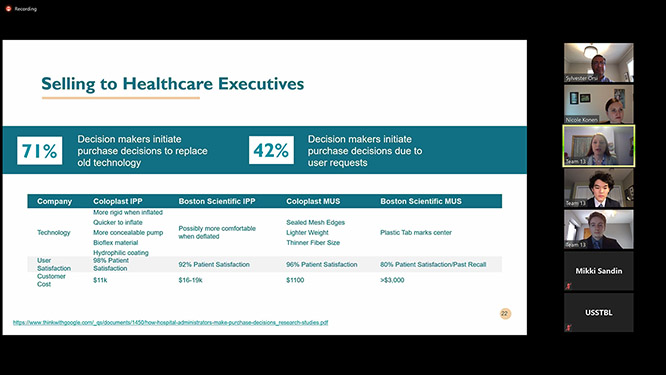When the world went remote, students studying international business at Nebraska Business competed on virtual teams to solve a global business challenge in the inaugural Global Case Competition. Students worked together virtually and presented their business plans through Zoom.
 Students presented their business plans for Coloplast, a Danish multinational company, to a panel of judges with international business experience through Zoom.
Students presented their business plans for Coloplast, a Danish multinational company, to a panel of judges with international business experience through Zoom.
“Right before we were sent home due to COVID-19, the international business staff held a meeting where we could share our ideas about how the competition could happen virtually. It was great to contribute to the success of the competition,” explained Meghan Schuette, sophomore international business major from Omaha, Nebraska, and part of the competition’s winning team.
The competition transformed into a two-round online competition. The first round included a video submission and the last round involved a virtual presentation.
Eleven teams competed, including some with students in several time zones. Over the course of 10 days, students tackled the competition’s interdisciplinary case, which represented the realities of a competitive business environment. They conducted market research and developed a business plan to expand global market share for the competition’s sponsor, Coloplast.
A Danish multinational company, Coloplast develops, manufactures and markets medical devices and services related to ostomy, urology, continence and wound care. Coloplast President Steve Blum, ’85, was impressed by the substance of their presentations as well as their resilience.
“We have all learned different ways to demonstrate flexibility during this difficult COVID-19 period. The students embraced their virtual circumstances. It was exciting to see their engagement and energy. There was no loss of enthusiasm, nor was there the perception that the experience was less compelling or lost due to the digital platform,” said Blum.